Permissive Parenting Child Outcomes Permissive Parenting Is Characterized By Parents Who Are Responsive To Their Children, But Lack Rules And Discipline.
Permissive Parenting Child Outcomes. Parenting Or Child Rearing Is The Process Of Promoting And Supporting The Physical, Emotional, Social, And Intellectual Development Of A Child From Infancy To Adulthood.
SELAMAT MEMBACA!
Permissive parenting is characterized by parents who are responsive to their children, but lack rules and discipline.
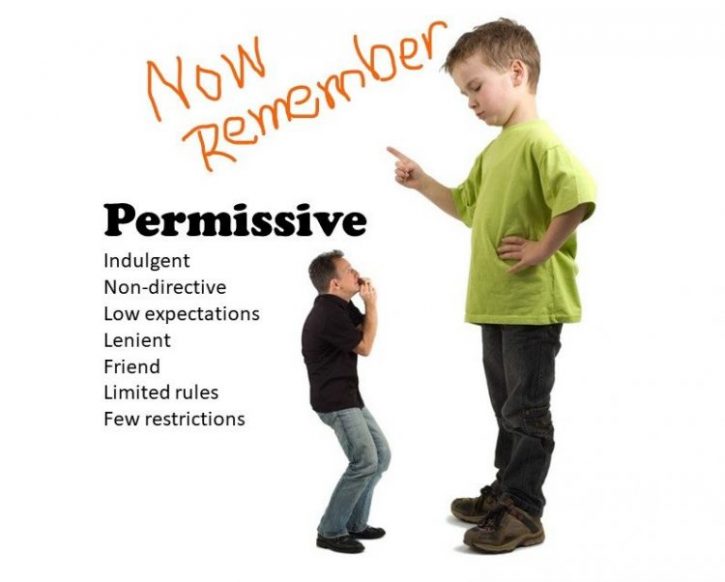
Researchers have found that the overly relaxed approach to parenting exhibited by permissive parents can lead to a number of negative outcomes.
Permissive parenting, also known as indulgent parenting, is a parenting style characterized by high responsiveness and low demandingness.
Permissive parents are very responsive to the child's emotional needs.
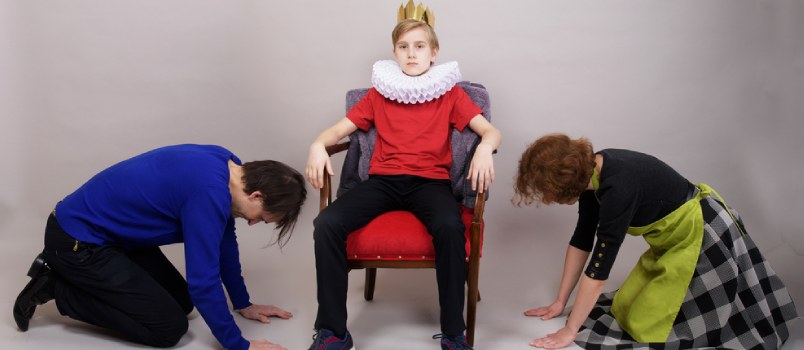
Permissive parents are highly responsive towards their children's needs and nurture their talents and personality.
You can understand the concept better with a few examples.
The permissive parenting style has been linked with optimal child outcomes, but it depends on how you define permissive. it promotes psychological development, and protects children from toxic stress.

You end up with a child who suffers from anxiety due to a perceived lack of structure and support.
Effects of permissive parenting style.
The developmental outcomes for children reared in permissive homes are also generally more negative compared to those reared in authoritative homes.

How raising children helps parents grow.
Observational skills sensativity to others behaviorefficientcy resiliency motivationsocial skills.
Permissive parenting outcomes family decision making parent child relationship conformity and obedience high self esteem.
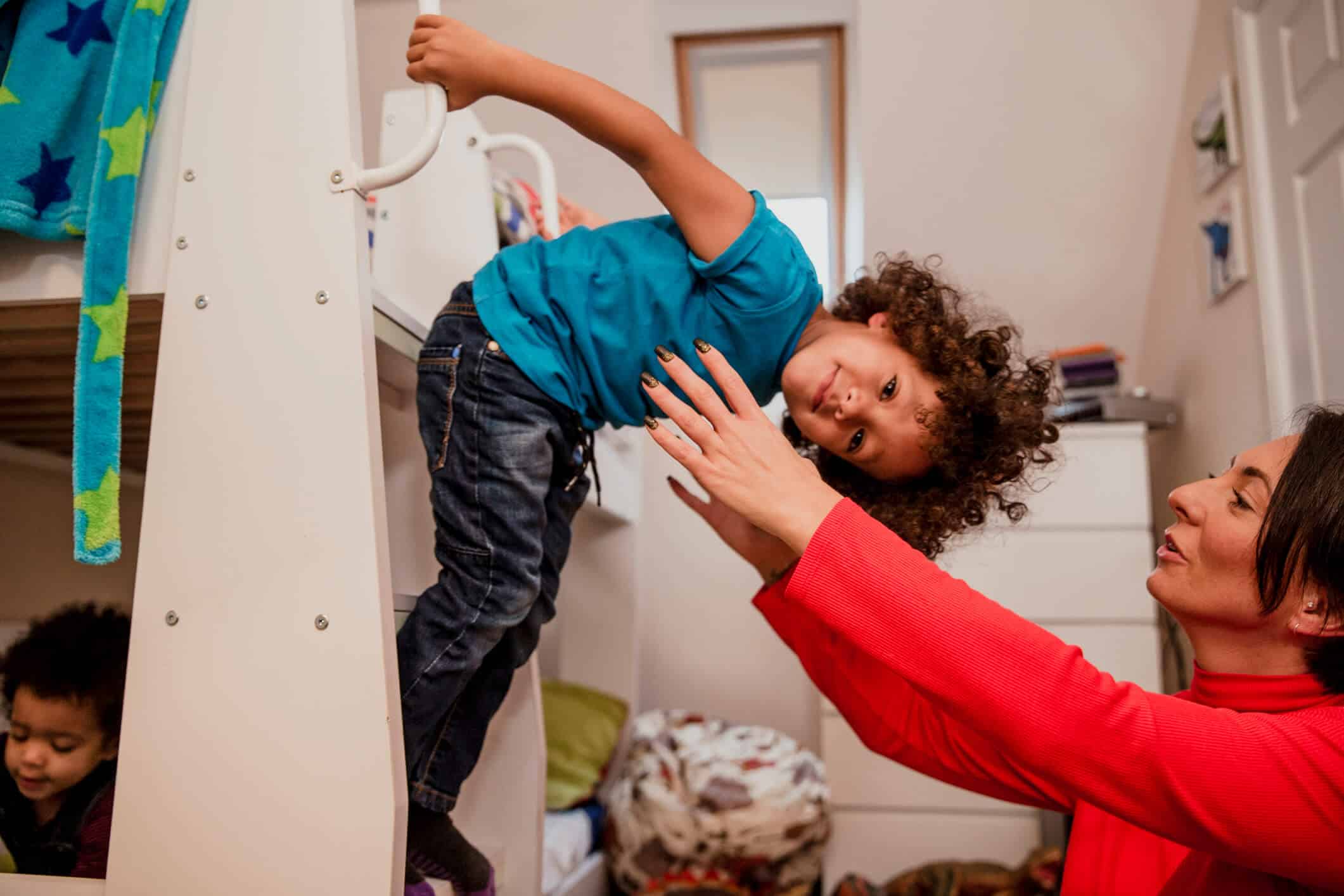
Permissive parenting itself is not necessarily neglectful.
Those who practice permissive parenting do interact with and respond to their children.
Permissive parenting can be bad for child development.

Therefore, parents are more likely to ignore bad behavior.
What's wrong with permissive parenting?
Most parents hate the idea of causing their child to get upset.

Haven't we all felt that way?
Besides, it's so hard to know whether what we're asking is.
Parental permissiveness is the degree to which parents allow their children freedom to make decisions and take responsibilities for their lives.

Extreme permissiveness amounts to le.
Most parents who practice permissive parenting tend to be kind and loving toward their kids, which is great!
But over time, the lack of boundaries and limits and though not identical, these similar styles of parenting, when implemented thoughtfully and on the right type of child, can have positive outcomes.
But how friendly is too and though not identical, these similar styles of parenting, when implemented thoughtfully and on the right type of child, can have positive outcomes.
Children who come from a permissive parenting situation are more likely to be aggressive, impulsive, and lack personal responsibility.
These are all of the bad outcomes of permissive parenting and the truth is that no one parenting style can eliminate all of the.

Children whose parents are described as authoritarian, permissive and disengaged show signicantly worse outcomes, with children of.
Permissive parents usually take on more of a friend role than a parent role.
They often encourage their children to talk with them about their problems, but they usually don't put much effort into discouraging poor choices or bad behavior.

Indifferent to the fact you are not actively being an involved parent and are not acting as if you are concerned or affected by your child's behaviour.
Indulgent in that you are.
The third style of parenting in which the children run the show and anything goes;

Seem more like a friend than a parent according to the research, an overly relaxed approach to parenting can lead to a number of negative outcomes.
Since children raised by permissive parents are not enforced any type of.
Permissive parenting is accommodating parenting (sometimes even referred to as indulgent parenting).
These parents are highly sensitive.
Children who are raised under permissive parenting style are more likely to engage in acts of misconduct.
They may even become alcoholics and drug these were some of the outcomes of adopting permissive parenting style, but there are many other problems that may arise because of.

This literally means they would speak loudly or show aggression to parents.
This problem, if not addressed would rise till their adulthood and can completely destroy your relationship as parents with your child.
'permissive parents tend to be lovely, thoughtful, kind parents but they haven't learned to set boundaries that enable them to effectively discipline their child.' this parenting style tends to be the total opposite of 'helicopter parenting.' instead of hovering over their children's every move.
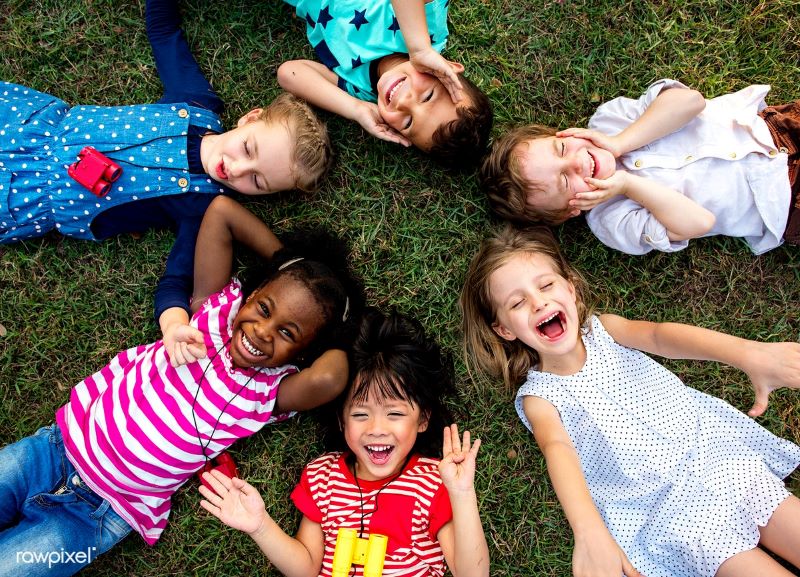
When children fail to meet the expectations, these parents are more nurturing and forgiving rather than permissive parenting(too soft).
According to diana baumrind parenting styles. about.com psychology.
Children whose parents have mostly used authoritative parenting tend to be healthy and permissive or indulgent parenting style.

Authoritarian parenting has been linked with children showing signs of anxiety and anger.
While they conform to authority permissive parenting:
It is quite high on responsiveness, but low on demandigness.
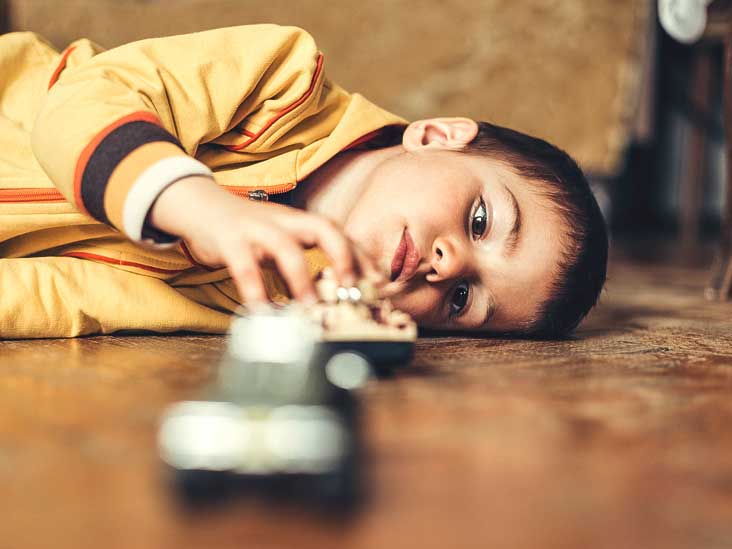
Parenting or child rearing is the process of promoting and supporting the physical, emotional, social, and intellectual development of a child from infancy to adulthood.
A parenting style is a psychological construct representing standard strategies that parents use in their child rearing.
Ini Fakta Ilmiah Dibalik Tudingan Susu Penyebab Jerawat6 Khasiat Cengkih, Yang Terakhir Bikin HebohAwas!! Ini Bahaya Pewarna Kimia Pada MakananManfaat Kunyah Makanan 33 KaliJam Piket Organ Tubuh (Paru-Paru)Paling Ampuh! Mengusir Tikus Dengan Bahan Alami, Mudah Dan PraktisBahaya! Setelah Makan Jangan Langsung Minum, Ini Faktanya!!Mengusir Komedo Membandel4 Titik Akupresur Agar Tidurmu NyenyakVitalitas Pria, Cukup Bawang Putih SajaA parenting style is a psychological construct representing standard strategies that parents use in their child rearing. Permissive Parenting Child Outcomes. The quality of parenting can be more essential than the quantity of time spent with the child.
Permissive parenting is characterized by parents who are responsive to their children, but lack rules and discipline.
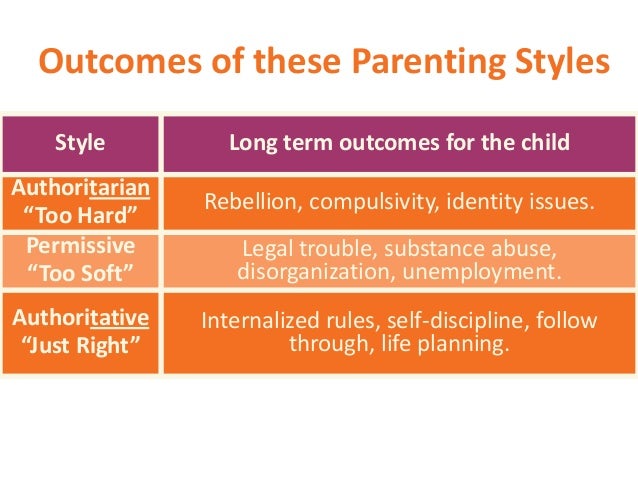
Researchers have found that the overly relaxed approach to parenting exhibited by permissive parents can lead to a number of negative outcomes.
Permissive parenting, also known as indulgent parenting, is a parenting style characterized by high responsiveness and low demandingness.
Permissive parents are very responsive to the child's emotional needs.

Permissive parents are highly responsive towards their children's needs and nurture their talents and personality.
You can understand the concept better with a few examples.
The permissive parenting style has been linked with optimal child outcomes, but it depends on how you define permissive. it promotes psychological development, and protects children from toxic stress.

You end up with a child who suffers from anxiety due to a perceived lack of structure and support.
Effects of permissive parenting style.
The developmental outcomes for children reared in permissive homes are also generally more negative compared to those reared in authoritative homes.

How raising children helps parents grow.
Observational skills sensativity to others behaviorefficientcy resiliency motivationsocial skills.
Permissive parenting outcomes family decision making parent child relationship conformity and obedience high self esteem.

Permissive parenting itself is not necessarily neglectful.
Those who practice permissive parenting do interact with and respond to their children.
Permissive parenting can be bad for child development.

Therefore, parents are more likely to ignore bad behavior.
What's wrong with permissive parenting?
Most parents hate the idea of causing their child to get upset.

Haven't we all felt that way?
Besides, it's so hard to know whether what we're asking is.
Parental permissiveness is the degree to which parents allow their children freedom to make decisions and take responsibilities for their lives.
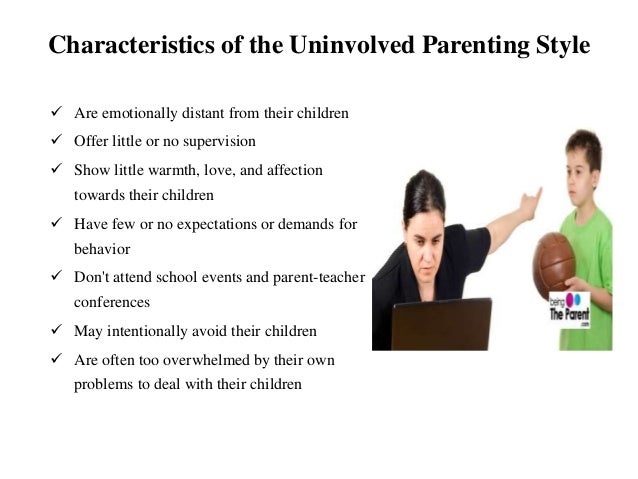
Extreme permissiveness amounts to le.
Most parents who practice permissive parenting tend to be kind and loving toward their kids, which is great!
But over time, the lack of boundaries and limits and though not identical, these similar styles of parenting, when implemented thoughtfully and on the right type of child, can have positive outcomes.

But how friendly is too and though not identical, these similar styles of parenting, when implemented thoughtfully and on the right type of child, can have positive outcomes.
Children who come from a permissive parenting situation are more likely to be aggressive, impulsive, and lack personal responsibility.
These are all of the bad outcomes of permissive parenting and the truth is that no one parenting style can eliminate all of the.
Children whose parents are described as authoritarian, permissive and disengaged show signicantly worse outcomes, with children of.
Permissive parents usually take on more of a friend role than a parent role.
They often encourage their children to talk with them about their problems, but they usually don't put much effort into discouraging poor choices or bad behavior.

Indifferent to the fact you are not actively being an involved parent and are not acting as if you are concerned or affected by your child's behaviour.
Indulgent in that you are.
The third style of parenting in which the children run the show and anything goes;

Seem more like a friend than a parent according to the research, an overly relaxed approach to parenting can lead to a number of negative outcomes.
Since children raised by permissive parents are not enforced any type of.
Permissive parenting is accommodating parenting (sometimes even referred to as indulgent parenting).

These parents are highly sensitive.
Children who are raised under permissive parenting style are more likely to engage in acts of misconduct.
They may even become alcoholics and drug these were some of the outcomes of adopting permissive parenting style, but there are many other problems that may arise because of.
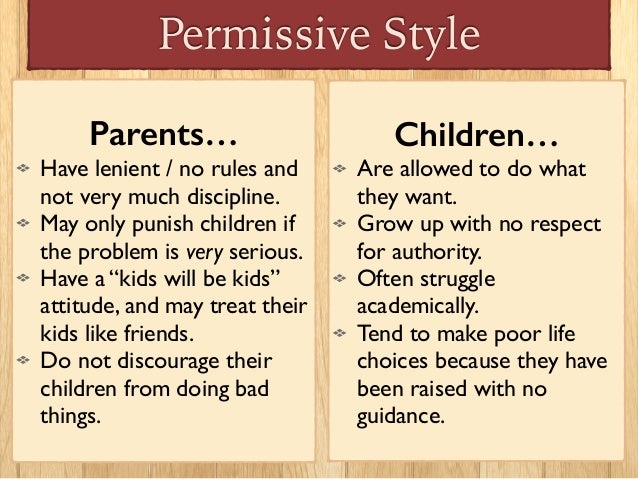
This literally means they would speak loudly or show aggression to parents.
This problem, if not addressed would rise till their adulthood and can completely destroy your relationship as parents with your child.
'permissive parents tend to be lovely, thoughtful, kind parents but they haven't learned to set boundaries that enable them to effectively discipline their child.' this parenting style tends to be the total opposite of 'helicopter parenting.' instead of hovering over their children's every move.
:max_bytes(150000):strip_icc()/1095045-article-types-of-parenting-styles-5a7cb6aaa18d9e00362ef5eb.png)
When children fail to meet the expectations, these parents are more nurturing and forgiving rather than permissive parenting(too soft).
According to diana baumrind parenting styles. about.com psychology.
Children whose parents have mostly used authoritative parenting tend to be healthy and permissive or indulgent parenting style.
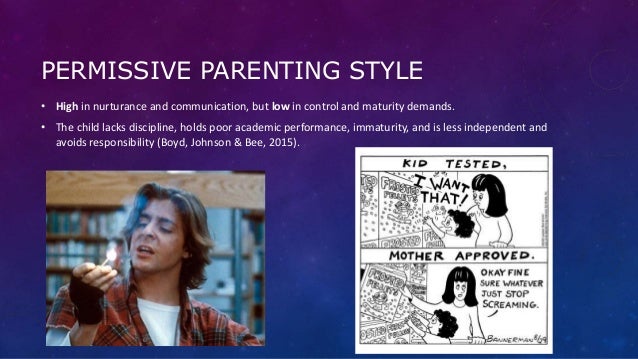
Authoritarian parenting has been linked with children showing signs of anxiety and anger.
While they conform to authority permissive parenting:
It is quite high on responsiveness, but low on demandigness.
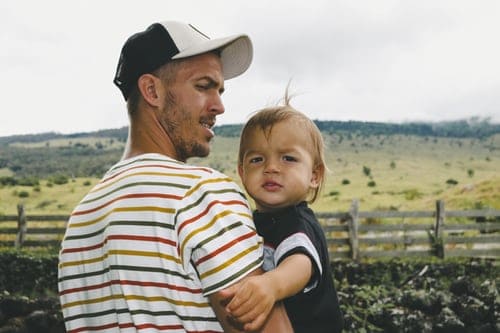
Parenting or child rearing is the process of promoting and supporting the physical, emotional, social, and intellectual development of a child from infancy to adulthood.
A parenting style is a psychological construct representing standard strategies that parents use in their child rearing.
A parenting style is a psychological construct representing standard strategies that parents use in their child rearing. Permissive Parenting Child Outcomes. The quality of parenting can be more essential than the quantity of time spent with the child.Pecel Pitik, Kuliner Sakral Suku Using BanyuwangiKuliner Legendaris Yang Mulai Langka Di Daerahnya5 Trik Matangkan ManggaTernyata Bayam Adalah Sahabat WanitaTernyata Kamu Tidak Tau Jajanan Ini Namanya Beda Rasanya SamaSejarah Prasmanan Alias All You Can EatResep Cream Horn PastryPetis, Awalnya Adalah Upeti Untuk RajaResep Ramuan Kunyit Lada Hitam Libas Asam Urat & RadangResep Yakitori, Sate Ayam Ala Jepang
Komentar
Posting Komentar